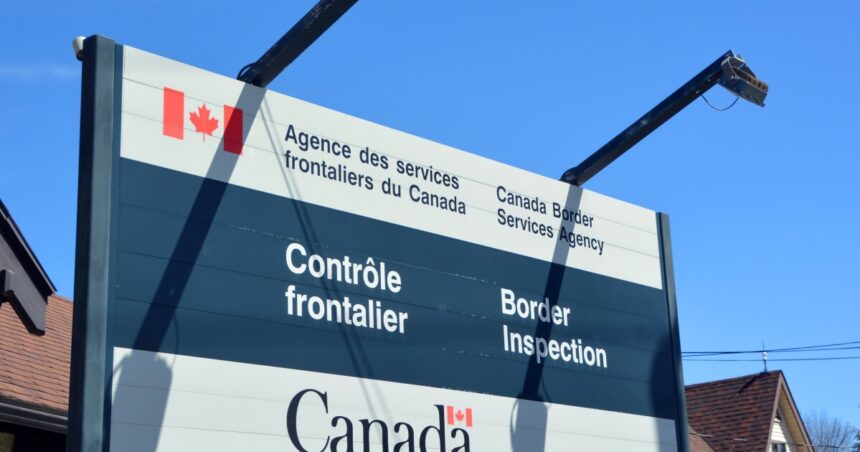Canadian border agents are getting ready for a strike on Friday — potentially causing travel disruptions for nearly 400,000 individuals who cross the U.S.-Canada border daily — unless a new labor agreement is reached.
The Public Service Alliance of Canada and the Customs and Immigration Union, the two unions representing Canada Border Services Agency employees, have given the country’s Treasury Board until 4 p.m. ET to finalize negotiations. If a new contract is not agreed upon by then, over 9,000 CBSA employees will participate in a nationwide strike.
“We are optimistic that we can reach an agreement to prevent a strike and any potential delays at Canada’s borders,” said Sharon DeSousa, PSAC national president. “However, time is running out for Trudeau’s Liberal government to negotiate a fair contract for our members.”
Border agents advocating for the new agreement have been working without a contract for over two years, according to PSAC. The union is now requesting a salary increase to be in line with other law enforcement agencies in the country, as well as options for remote work, improved retirement benefits, and enhanced workplace protections.
“Our members have clearly expressed their willingness to fight for fair wages, better retirement benefits, and to improve the work environment at CBSA,” said Mark Weber, CIU national president. “It is time for the government to support CBSA employees.”
In May, PSAC members voted 96% in favor of a strike mandate, with mediation sessions commencing on June 3. The union stated that if a strike does occur, more than 90% of essential front-line border officers will still provide basic services. However, this still poses a risk of slowed traffic at the country’s national entry points.
In 2021, a work-to-rule action resulted in significant delays at airports and national borders until an agreement was reached after 36 hours of mediation between the government and border unions.
Health Care
Florida can import cheaper prescription drugs from Canada, FDA says
5:43 PM, Jan 05, 2024
A strike also disrupts the supply chain between the U.S. and Canada, who exchanged $3.6 billion worth of goods and services across the border daily in 2023, as reported by Canada. Data from the Bureau of Transportation Statistics reveals that trucks carried 55% of freight between the two countries in 2022.
The Canadian Trucking Alliance urged border employee unions and the federal government to agree on terms to safeguard the country’s trade investment and partnership with the U.S. amid potential disruptions from railway labor negotiations and challenges in the trucking sector. CTA emphasized that the Government of Canada must lead decisively to prevent economic chaos from jeopardizing the supply chains and economic stability of the country.
The Treasury Board of Canada announced on Wednesday that the current strike threat hinders negotiations and disrupts expected services for residents traveling across the border.
“Negotiation involves give and take. The government is willing to make compromises, but there needs to be progress from both sides,” stated the Board. “We are disappointed by PSAC’s threat of labor disruptions when we are prepared to negotiate for a fair agreement through sincere bargaining.”
In the event of a strike on Friday, the Mohawk Council of Akwesasne assured that the domestic lane will remain open from 7 a.m. to 11 p.m. daily, with Cornwall Port of Entry officials ensuring safe and efficient crossing for travelers. However, increased waiting times, picketing, and display of union-related materials are expected. The CBSA pledged to promptly address any delays and provide updates on its website.





